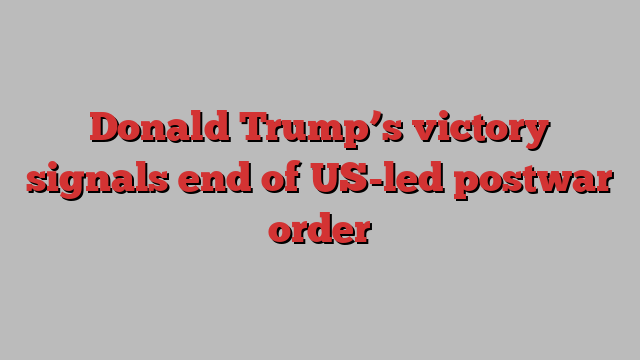
The western-led multilateral world order that flourished after the end of the cold war and embodied a more hopeful collaborative spirit has for years been showing signs of strain.
Now the re-election of Donald Trump with his “America First” agenda threatens to accelerate its decline — if not render it irrelevant.
“Welcome to the brave new world,” said a senior EU official of the consequences of Trump’s emphatic election victory. “It’s very, very bad for everyone,” they said — not just in Europe but in Asia, Africa, the Middle East and South America. “Nobody is a winner. Except, perhaps, [Vladimir] Putin.”
Many leaders of developing economies profoundly disagree. A more inward-looking America, retreating from its traditionally dominant role on the global stage, creates an opportunity for the so-called middle powers, such as Brazil and Indonesia, to take a bigger role in reshaping the world more to their liking.
But the US election result has already thrown multinational policymaking into disarray. In the next fortnight two global summits are scheduled: the COP climate talks in Baku and then a week later the G20 leaders’ annual meeting in Rio de Janeiro.
In a stroke, their proposed agendas risk being undercut. Trump has long made clear his disinterest in, if not disdain for, the type of multilateral gatherings that the US, as the world’s pre-eminent power, has by and large presided over for three decades.
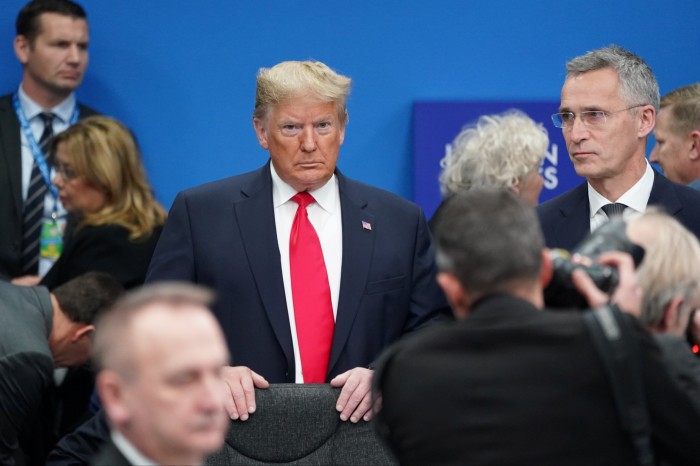
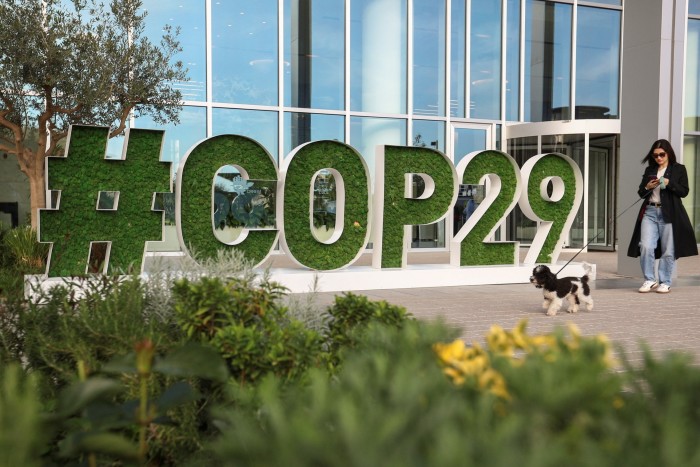
“We are seeing how much the world order, the one that was built after the second world war with the UN charter at the centre, will be increasingly under pressure,” said Christoph Heusgen, chair of the Munich Security Conference.
“We see this trend toward more authoritarian countries, less democracies, less human rights,” he added. “We see it on all continents. Now we have an authoritarian leader in the US. If you look at what he says, you can expect that at least a part of what he has announced will be implemented.”
A sense of foreboding is particularly acute among America’s east Asian and European allies who have long relied on the US as a security shield, and fear Washington under Trump would be less predictable and less reliable.
As for Nato, Trump has questioned whether the US would honour the alliance’s mutual defence clause. Nato officials are unsure whether this was a genuine threat to a historic understanding or mere rhetoric designed to put pressure on them to spend more on defence.
EU leaders gathering in Budapest on Thursday for a summit tried to put a brave face on the future of multilateralism. “Today’s geopolitical context requires us to strengthen the multilateral system and make it more inclusive,” Josep Borrell, the EU’s chief diplomat, told the FT.
“EU-US co-operation and shared leadership is instrumental, to avoid alternative models to take over, which in the longer term will be to the detriment of both the EU and the US interests,” he added.
But privately many are gloomier. The Joe Biden administration, while less committed to free trade than its predecessors, has done its bit to back the multilateral order. But even so, that order has come under increasing strain as tensions grew between the US and China as well as Russia. Several key institutions are deadlocked.
The UN Security Council has returned to the frozen impasse of the cold war years. The World Trade Organization is moribund, even before the arrival of a second Trump administration that may unleash a global trade war. The president-elect is expected to impose sweeping tariffs on imports into the US, likely accelerating a global push towards protectionism and a retreat from the free trade model championed by Brussels.
As for the World Bank and IMF, which have dominated global economic policymaking since their foundation in 1944, the election of the unilateralist Trump means they face being squeezed between two conflicting pressures.
As well as from Trump, criticism of the two institutions has mounted from countries in the global south, which say their western-dominated leadership does not reflect the shape of the modern global economy.
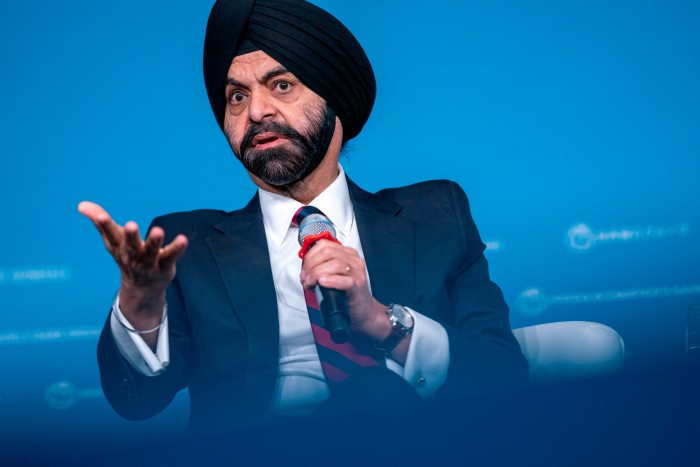
Ajay Banga, president of the World Bank, said Trump should be judged by his actions and not his words, highlighting that the most recent capital increase for the International Bank for Reconstruction and Development, the institution’s lending arm, took place in Trump’s first term.
Multilateralism will continue, Banga implied, highlighting the co-operation between regional development banks. The best policy for the bank, he told the Financial Times, is to focus on improving its performance.
“I think he [Trump] is willing to listen if you come to him and tell him, what I am trying to do with the World Bank is what you should want me to do: make it faster, make it more efficient, work with others, work with the private sector, help create jobs.”
The first big test of the old order will come next week. Delegates preparing for the COP29 climate forum fear the election of Trump, who has vowed to pull the US out of the Paris climate agreement to limit global warming below 1.5C degrees, could prompt an exodus of other countries from the pact.
Delegates worry other states will pre-emptively water down their own commitments in anticipation of Trump’s presidency, undermining hopes for the Baku summit even as global temperatures hit record highs.
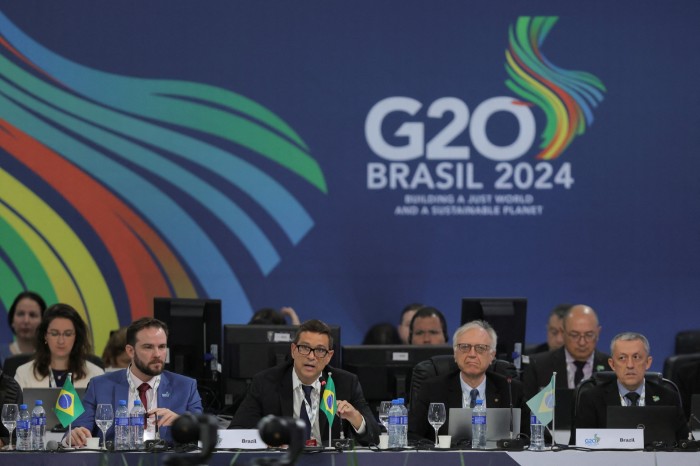
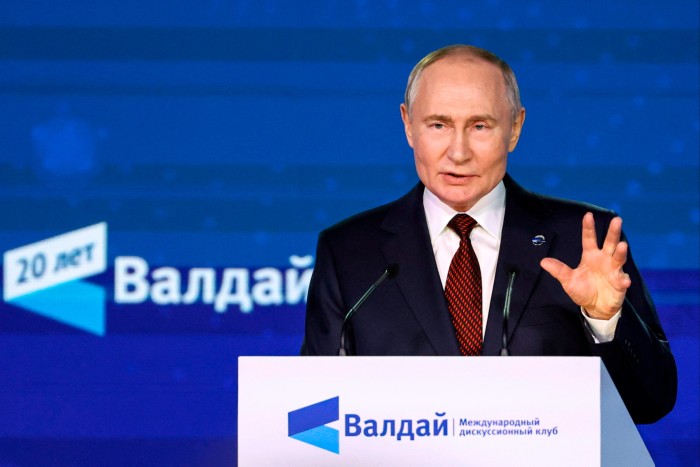
Such sentiments also threaten the green ambitions of Luiz Inácio Lula da Silva, Brazil’s president, ahead of the G20 leaders’ summit in Rio and the country’s hosting next year of COP30.
One senior western diplomat involved in preparations for the G20 said the summit risked becoming “a car crash” in the wake of Trump’s election. “It will be a very complicated G20. There are so many destabilising factors, and I’m not sure we can mitigate that,” the diplomat said.
Brazilian diplomats are more sanguine, hoping the spectre of a more isolationist US will encourage the rest of the world to shore up existing international frameworks. “On climate, it’s the US versus the world, not the US versus Brazil. It’s an opportunity for Brazil,” one senior diplomat told the FT.
Brazilian officials also see a fresh opportunity for the Brics, the rapidly expanding grouping of developing economies, led by Brazil, Russia, India, China and South Africa — an idea endorsed by Russia’s President Vladimir Putin on Thursday when he hailed the Brics as the basis of “a new, just world order”.
The US has had unilateralist presidents before. Seasoned western diplomats recall the jolt George W Bush delivered to the multilateral system at the start of his first term in office in 2001. But Trump’s overt contempt for the global system and preference for transactional deals over principles, they say, is like nothing the post-1945 world has seen from the country before.